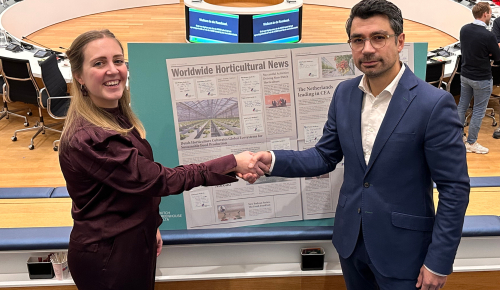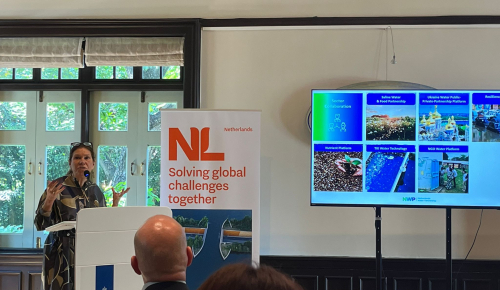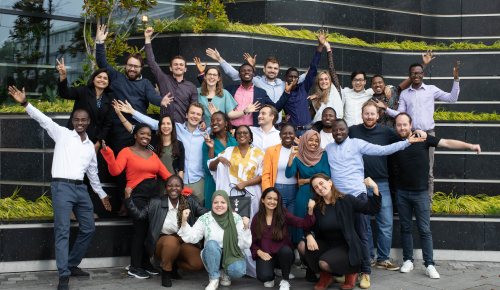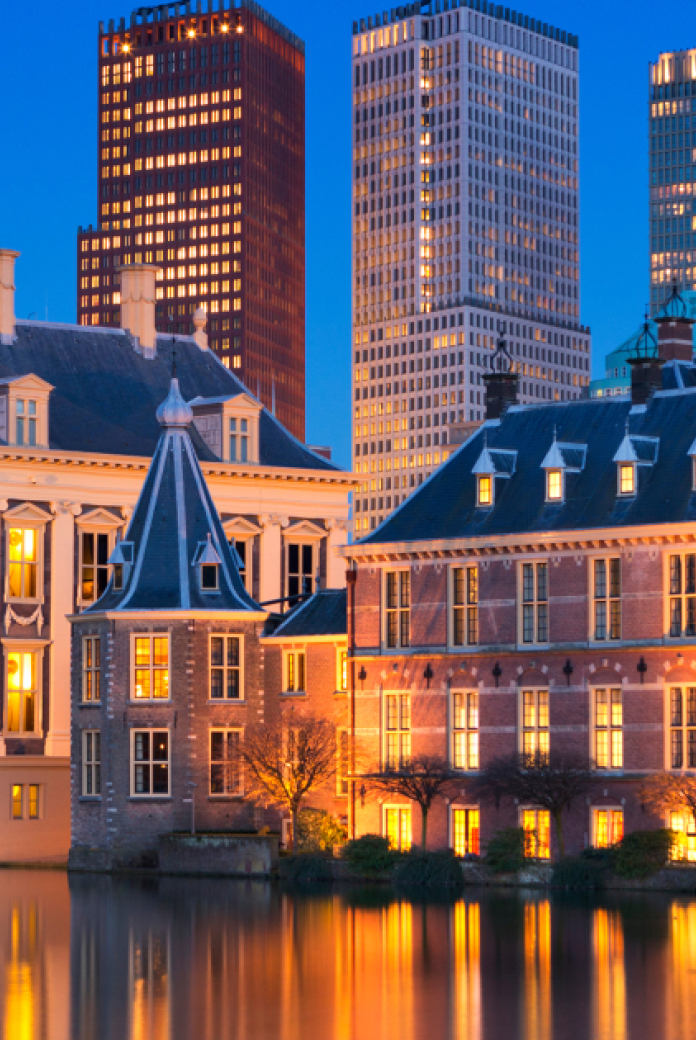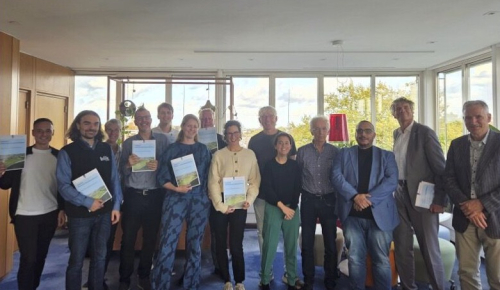Blog
19 November 2020Linking technology and sustainability to achieve the SDGs
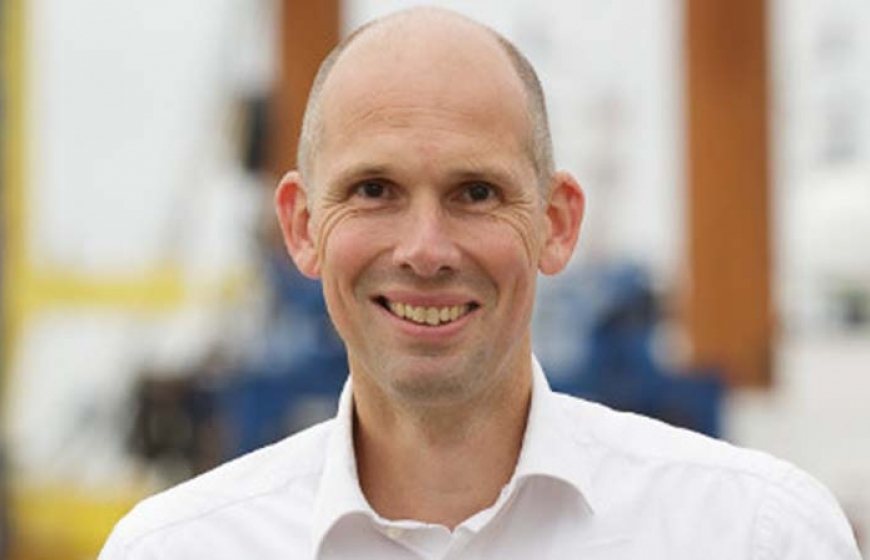
The link between technology and sustainability for water safety and water security is not only a worldwide necessity, it also offers great opportunities, especially now. The world is facing huge water challenges, but at the same time water can and must be a catalyst for developing sustainable solutions. And the Dutch water sector is excellently positioned in that regard. That is the conviction of Johan van der Hoek, Director of Boskalis Nederland and new Board Member of the Netherlands Water Partnership (NWP).
‘Let me start by saying that I am not really a sustainability guru, but a realist. And to me it is perfectly clear that sustainability is inextricably linked with what we do, and the water sector in particular is directly linked to the UN’s Sustainable Development Goals (SDGs). Dutch hydraulic engineering, the field in which I work, is one of the best promotional tools for the Netherlands, and we are aware of our high social relevance. Our knowledge and experience in the field of hydraulic engineering and water management is making an important contribution to the SDGs, especially when it comes to water safety and water security. And the same goes for the Dutch water sector as a whole. The challenges are huge, but the opportunities are at least as impressive. The Dutch water sector can make a significant contribution to the desired outcomes and in doing so, benefit from the opportunities. The connection between the Dutch water sector and the SDGs is extremely interesting and valuable.
Dutch nature-based solutions
The Netherlands already has a series of wonderful examples of how you can put this sustainability vision into practice while focusing on the environment and nature. I am thinking of the Room for the River concept, for example, in which rivers regain their natural course while at the same time we create buffers for high water and new natural areas. A clean and safe river is also extremely important economically and socially – you see that all over the world. Another example of Dutch nature-based solutions is the Marker Wadden, where we created islands from silt from the bottom of the lake. Nature is developing surprisingly fast there and the biodiversity is increasing. There is a lot of international interest in these types of concepts and the Netherlands itself is the showroom: we show that it is possible and that it works.
I was involved in the construction of a 14 kilometre long sea dike in Suriname that not only protects the hinterland, but also stops salinisation. This is allowing the area to redevelop and to strengthen the basis for livelihoods.
Integrated approach
I am of the opinion that true solutions to water challenges go far beyond only civil engineering work. They are based on an integrated approach that brings safety and sustainability together and in which economic and social development go hand in hand. The Paris Agreement has given this increasingly widely recognised theme a strong impetus and the Netherlands is truly one of the world leaders in this field. In our own country and abroad, we demonstrate how effective solutions can be inclusive and circular at the same time. And the need to choose this path is only growing in the face of climate change and urbanisation.
Boskalis’ international strategy focuses on fast-growing seaside metropolises, for example in India and Southeast Asia. The challenges in these regions are immense due to rising sea levels and river pollution. And these are precisely the areas where this integrated approach is very relevant.
I fervently hope that the extensive Covid-19 recovery programmes will devote sufficient attention to that integrated, sustainability-oriented vision. Right now, we have the opportunity to make that change instead of opting for traditional solutions. In the longer term the latter will make problems bigger rather than smaller.
Creating sustainable impact
NWP is increasingly strengthening the link between economic opportunities and achieving the SDGs. I think this is an inspiring and exciting move. It is certainly in the right direction, but it is also complex. It's not just a matter of technology. Sustainable solutions start with awareness and that takes time. So it is a matter of persistence: showing that it can be done and that it works over time. Repetition is the power of advertising. I am convinced this approach allows us to tap into very rich potential. To paraphrase a Dutch maritime saying, there is increasing wind in our sails. There is growing recognition of the value of the Dutch integrated approach and international financial institutions are increasingly looking at sustainability and environmental quality when making investments. The World Bank criteria, for example, largely reflect Dutch ideas.
Long term vision, short term results
Our vision at NWP is essential, but we need to get started. We need to take important steps today on this road to a distant future. Personally, this is my drive. I am solution oriented. I look at the long term, but set tangible objectives to work towards. We all need to enjoy concrete results in the short term, and the most vulnerable parts of the world need change as soon as possible. It is therefore essential that the various parts of the sector reach out to each other: contractors and engineering firms; NGOs and the knowledge sector; and public and private entities. And we must jointly aim at realistic propositions, tailored to local circumstances and possibilities, that are feasible both technically and financially.
I joined the NWP Board to inspire and to motivate, to take steps forward together. By making the connection between economic opportunities and sustainability opportunities, NWP will be able to bring about an even greater impact worldwide for the Dutch water sector in the coming years. I strongly agree with the three words that sum up NWP's vision: water, driven, future!’
